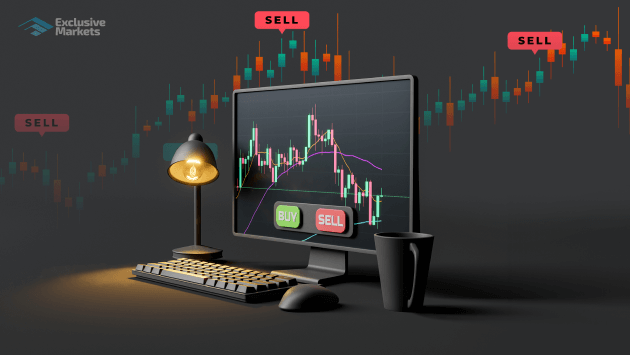Bonos sin Tanque acerca wild gambler Sin giros sin tanque de México mayo 2025
4 de noviembre de 2025Gorilla Wins Gambling enterprise Review The fresh Casino six,one hundred thousand Invited Extra
4 de noviembre de 2025
The Ultimate Beginner’s Guide to Forex Trading
Forex trading, or foreign exchange trading, is the act of buying and selling currencies on the foreign exchange market with the intent of making a profit. It is one of the largest financial markets in the world, with a daily trading volume exceeding $6 trillion. If you’re new to Forex, this guide will provide you with everything you need to get started with trading effectively. For further assistance, consider downloading a reliable forex trading beginner guide Trading App APK that can help you manage your trades on the go.
Understanding Forex Trading Basics
Before diving into the strategies and tools of Forex trading, it’s crucial to grasp the fundamental concepts:
1. Currency Pairs
In Forex trading, currencies are quoted in pairs, such as EUR/USD (Euro and U.S. Dollar). The first currency is the base currency, and the second is the quote currency. The price of the pair indicates how much of the quote currency is needed to purchase one unit of the base currency.
2. Pips and Lots
A pip (percentage in point) is the smallest price movement in the Forex market. Most currency pairs are quoted to four decimal places, so a change from 1.1000 to 1.1001 represents a one-pip movement. Trading is often done in lots, which are standardized quantities of currency. The standard lot size is 100,000 units of the base currency.
3. Leverage
Leverage is a tool that allows traders to control a larger position with a smaller amount of capital. For example, with a leverage ratio of 100:1, a trader can control a $100,000 position with only $1,000. While this can amplify profits, it also increases the risk of losses.
Setting Up Your Forex Trading Account
Once you understand the basics, the next step is to set up your trading account:
1. Choose a Broker
Select a reputable broker that offers a trading platform that suits your needs. Look for features like low spreads, various currency pairs, and good customer support.
2. Open a Demo Account
Most brokers provide a demo account that allows you to practice trading with virtual money. This is essential for beginners to get familiar with the trading platform, understand how trades are executed, and develop trading strategies without risking real money.
3. Funding Your Account
Once you feel confident, you can open a live trading account. Fund it using various methods offered by your broker, including credit/debit cards, bank transfers, or e-wallets.
Trading Strategies for Beginners
Understanding trading strategies is crucial for success in Forex trading. Here are a few beginner strategies to consider:
1. Day Trading

Day trading involves opening and closing trades within the same day. This strategy requires quick decision-making and technical analysis skills as traders aim to profit from short-term price movements.
2. Swing Trading
Swing trading aims to profit from price fluctuations over several days or weeks. Traders employ technical and fundamental analysis to identify potential price swings in the market.
3. Position Trading
Position trading is a long-term strategy where traders hold positions for weeks, months, or years. This method relies heavily on fundamental analysis to determine currency pairs’ long-term trends.
Risk Management
One of the essential aspects of trading is managing risk. Here are some tips to ensure that your trading is sustainable:
1. Use Stop-Loss Orders
A stop-loss order automatically closes your position when the market moves against you by a specified amount. It helps limit your losses and manage risk effectively.
2. Risk Only What You Can Afford to Lose
It’s advisable to risk a small percentage of your capital on a single trade, typically no more than 1-2%. This way, even a series of losses won’t significantly impact your overall capital.
3. Diversify Your Portfolio
Don’t put all your money into one currency pair or strategy. Diversifying across different pairs and strategies can help reduce overall risk.
Staying Informed
Forex markets are influenced by various economic factors, and it’s essential to stay informed about global news, economic reports, and market sentiment. Follow financial news, subscribe to Forex analysis services, and utilize economic calendars to keep track of crucial economic events.
Trading Psychology
Developing the right mindset is as crucial as your trading strategy. Here are a few psychological tips:
1. Stick to Your Plan
Develop a robust trading plan and adhere to it, regardless of emotional impulses. Discipline is vital in trading.
2. Accept Losses
No trader wins all the time. Accepting losses as part of the trading process can help you stay objective and focused on long-term success.
3. Keep Emotions in Check
Avoid making impulsive decisions based on fear or greed. Maintain a calm and rational mindset to make better trading choices.
Conclusion
Forex trading offers exciting opportunities for making money, but it also comes with a fair share of risks. As a beginner, focusing on education, practicing on a demo account, implementing effective strategies, and adhering to risk management principles are crucial steps toward success. Remember to always stay informed, be patient, and practice discipline in your trading endeavors. With dedication and the right approach, anyone can become a successful Forex trader.
